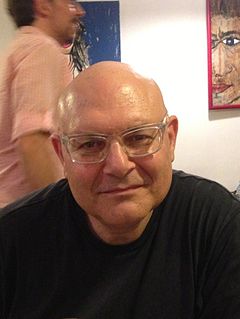A Quote by Deborah Smith
I teach Korean translation at the British Centre for Literary Translation summer school, so I see an emerging generation too, who are around my age. I'm hoping to find time to mentor, and to help emerging translators to a first contract through Tilted Axis.
Related Quotes
There is an old Italian proverb about the nature of translation: "Traddutore, traditore!" This means simply, "Translators-traitors!" Of course, as you can see, something is lost in the translation of this pithy expression: there is great similarity in both the spelling and the pronunciation of the original saying, but these get diluted once they are put in English dress. Even the translation of this proverb illustrates its truth!
General editors' preface The growth of translation studies as a separate discipline is a success story of the 1980s. The subject has developed in many parts of the world and is clearly destined to continue developing well into the twenty-first century. Translation studies brings together work in a wide variety of fields, including linguistics, literary study, history, anthropology, psychology, and economics. This series of books will reflect the breadth of work in translation studies and will enable readers to share in the exciting new developments that are taking place at the present time.
The practice of translation rests on two presuppositions. The first is that we are all different: we speak different tongues, and see the world in ways that are deeply influenced by the particular features of the tongue that we speak. The second is that we are all the same - that we can share the same broad and narrow kinds of feelings, information, understandings, and so forth. Without both of these suppositions, translation could not exist. Nor could anything we would like to call social life. Translation is another name for the human condition.
I have done literary translation because the University of Arkansas, where I did my MFA, was program of creative writing and translation, and it's a very different experience. You're trying to honor the writer. You shouldn't allow yourself, for example, to encounter a sentence that's three lines long and break it up into four smaller sentences.
In translation studies we talk about domestication - translation styles that make something familiar - or estrangement - translation styles that make something radically different. I use a lot of both in my translation, and modernism does both. For instance, if you look at the way James Joyce presents Ulysses, is that domesticating a classic? Think of it as an experiment in relation to a well-known text in another language.



































